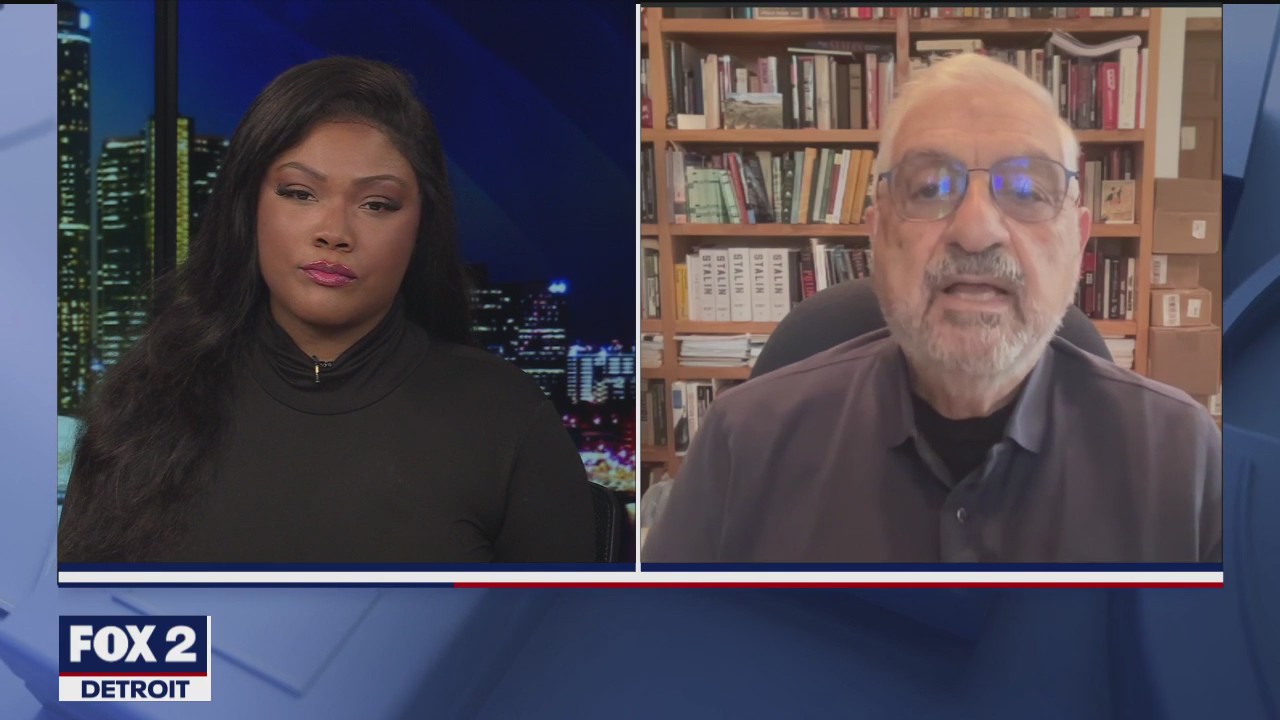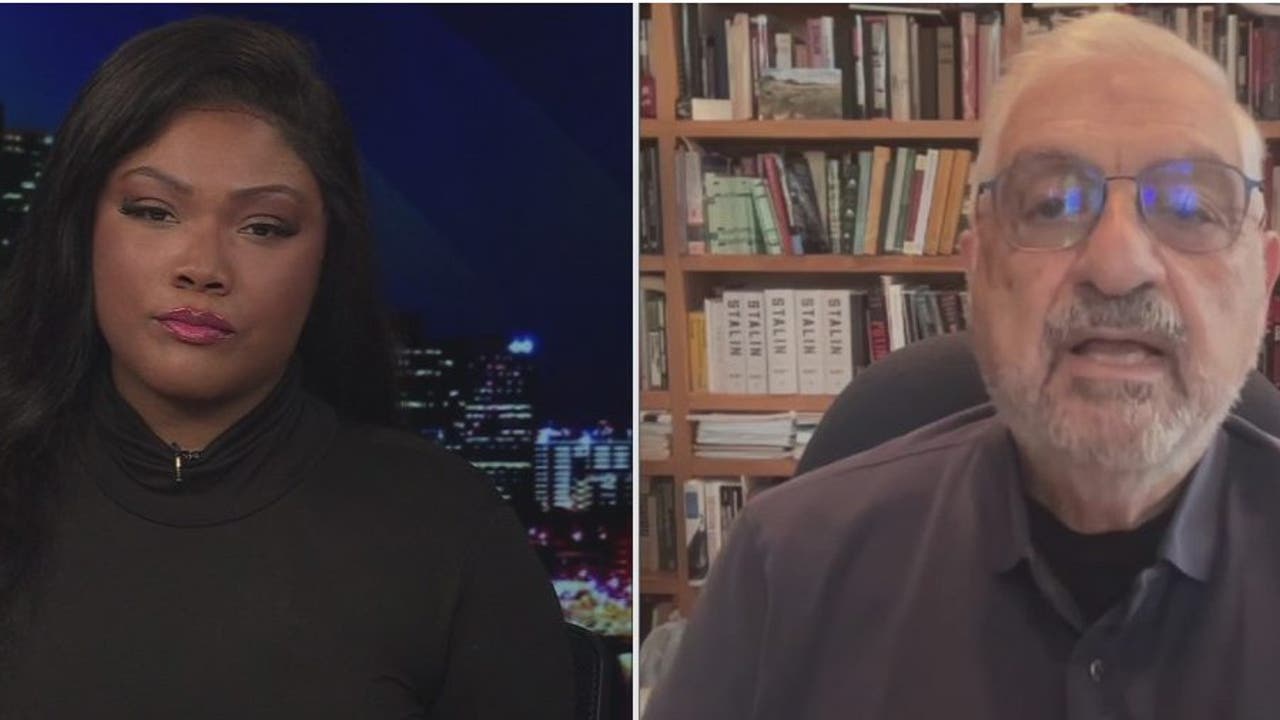
Speaking with Hilary Golston, former Soviet Union expert Dr. Ronald Suny said President Trump deserves some credit for seeking ceasefires and trying to end ongoing conflicts. Suny points to the fact Trump attempted to persuade Vladimir Putin to agree to a ceasefire during the Alaska summit, but that effort failed. However, Putin now appears willing to make significant concessions in exchange for peace in Ukraine. Suny added that other global powers, including China and Iran also want the war to end. “They want to do business,” he said. “The wars don’t do them any good.”
(FOX 2) – Former Soviet Union expert Dr. Ronald Suny, and Distinguished University Professor of History and Professor of Political Science at the University of Michigan and Emeritus Professor of Political Science and History at the University of Chicago, believes both the Middle East and Ukraine conflicts are moving toward “very unfair, one-sided solutions” that could permanently alter the balance of global power. Speaking with Hilary Golston ahead of a planned summit in Budapest between President Donald Trump and Russian President Vladimir Putin, Suny warned that the credibility of NATO, and perhaps the post-Cold War order itself, may hang in the balance.
“NATO is on the back foot right now,” Suny said. “It’s not able to function without the United States. NATO was very effective during the Cold War. That was a very tight alliance against communism and Soviet expansionism.”
Suny said the collapse of the Soviet Union in 1991 created a moment when the West could have built a new, cooperative security framework for Eurasia. Instead, he believes, the opportunity was lost. “There was a real question at that time about whether NATO should even continue,” he explained. “Russia over time felt humiliated that it wasn’t being listened to, that the West no longer wanted to treat it as a great power. That situation, it seems to me, led us to the war in Ukraine. We squandered that opportunity.”
If Putin ultimately prevails in Ukraine, Suny argues, NATO will be “even more diminished.” He said the alliance that once stood as the bedrock of European security now faces an identity crisis in a multipolar world where U.S. influence is no longer absolute.
Suny also offered measured praise for President Trump, crediting him for attempting to stop the fighting rather than inflame it. “I must give some praise to President Trump,” he said. “He doesn’t like these conflicts. He wants ceasefires.” Suny said Trump tried to persuade Putin to agree to a ceasefire during an August Alaska Summit. Putin refused, reportedly angering Trump. But following their most recent exchange, Suny said Putin appears ready to at least discuss a temporary ceasefire, as Trump looks for a breakthrough that could bring the war to a close.
Trump and Putin are expected to meet soon in Budapest, following Trump’s talks with Ukrainian President Volodymyr Zelenskyy at the White House. Zelenskyy has warned that any deal made without Ukraine’s participation is “inherently flawed.” Ukrainian drones have continued striking Russian energy infrastructure deep inside Russian territory, targeting oil and gas facilities even as diplomatic momentum for peace builds.
Suny cautioned that a peace agreement could come at a steep price. He said Trump appears willing to consider “radical concessions” that may leave Ukraine with significant territorial losses.
Suny also said the global calculus around the conflict has shifted, with major powers quietly pressing for stability rather than confrontation. “Most of these powers, including China, would like this war to end,” he said. “They want to do business. The wars don’t do them any good. China has been trying to urge Putin to stop the war but has failed.” He added that in some ways, these powers are “on the same side” in wanting to restore global economic flow and avoid prolonged instability.
Suny said the simultaneous peace efforts in the Middle East and Eastern Europe expose a deeper reordering of international power, as the world moves further away from the Cold War’s rigid alliances.
